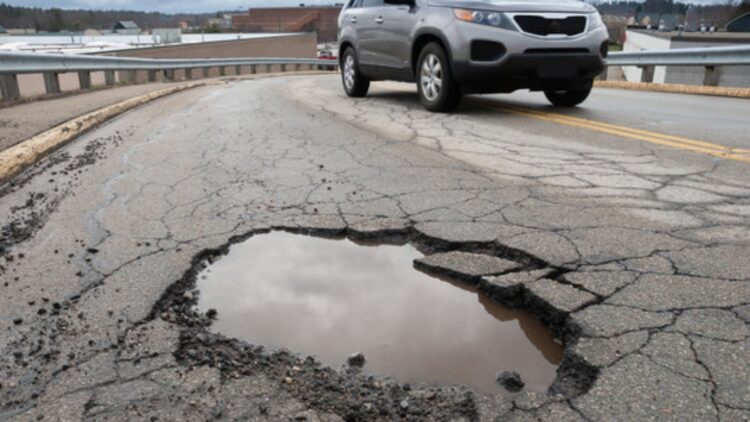The company Eurovia has developed a new material aimed at preventing roads from becoming riddled with potholes, which significantly increase the risk of accidents. Tests with this new material have been conducted on Essex Highways with the authorization of the Essex County Council’s road authority. The trial took place in 2022 and involved installing a roadway with hot-rolled asphalt enhanced with graphene.
According to the BBC, this new material is more expensive than what is usually used, but test results have shown that it is more resistant to weather and traffic. According to Tom Cunningham, a member of the Conservative cabinet for roads, infrastructure, and sustainable transport, it is a way to make roads more durable. The tests demonstrated that hot-rolled asphalt with graphene offers 10% better performance in stiffness tests and 20% in water sensitivity.
Danger on the roads: the potholes
Road safety does not only depend on the actions and decisions of drivers, but also on the condition of the infrastructure itself. Driving on a well-paved road, free of potholes and with good visibility and lighting, is not the same as driving on one that lacks any of these features. Although they may seem harmless, one of the main risk factors for accidents in road infrastructure is potholes: driving at slightly higher speeds or failing to see them in time increases the chances of an accident. Moreover, the problem with potholes is that no matter how many times they are repaired, they always reappear.
In this context, the company Eurovia has developed a new material that seems to offer greater durability than conventional ones. It is a mixture of hot rolled asphalt with graphene, a fine, strong, and flexible form of carbon.The vast majority of roads are built with asphalt, which is made by mixing bitumen with stone aggregates. This is how a substance is obtained that acts as a binder to hold the aggregates together.
Initial tests
The road authority of the Essex County Council, Essex Highways, has been the first to incorporate this material into its roads, with a lane of hot rolled asphalt enhanced with graphene in 2022. According to Tom Cunningham, Conservative cabinet member for roads, infrastructure, and sustainable transport, “Maintaining our 5,000 miles of roads is a battle, so we have to find innovative ways to make them last longer for residents.” Reports from the BBC state that the production of this mix costs more than traditional mixes, but the results have proven to be more resistant to weather and traffic.
Results of the new mix
According to Paul Goosey, CEO of Eurovia, the company that manufactures the material, “We are always looking for ways to improve our products, and when we found a graphene additive (a fine, strong, and flexible form of carbon) that we could mix with our hot rolled asphalt, Essex Highways agreed to be the first to try it.” He added, “Traditionally, hot rolled asphalt is a finer mix that can be prone to rutting, while stone mastic asphalt is coarser, and therefore water can accumulate in the gaps and cause potholes”.
The tests were carried out on a section of the A1016, and on the other side of the road it was constructed with traditional material. The results indicated that the new graphene mix showed 10% higher stiffness in tests and 20% better water resistance.
